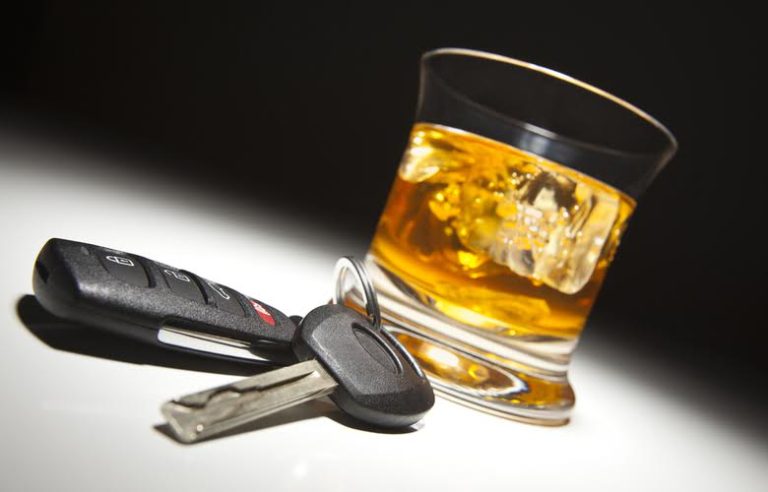Meanwhile, if you’ve been struggling with anxiety, depression, or are feeling lost, a therapist might be your best http://trindelka.net/forum/kultura/ket-fon-di-kat-von-d-t3441.html bet. They can be your accountability buddy and help you learn the tools you need to adapt to drinking less while helping you work towards improving other areas of your life that cause you to drink. Overall, compassion is one of the biggest predictors of improving mental and physical health. Beating yourself up doesn’t work – and if it’s how you usually talk to yourself, you may already have evidence of that. For others, they might know they should cut back but aren’t ready and shame might be the underlying emotion behind unsupportive comments. Others may feel attacked and reminded of their own issues, with jealousy coming out.
- You can avoid that unnecessary pressure or anxiety and instead, focus on changing habits little by little rather than all at once.
- Dry January can reveal signs of potential alcohol problems, including symptoms of alcohol withdrawal ranging from mild to serious, depending on how much you usually drink.
- For both the casual drinker and someone who may be struggling with alcohol use disorder, having a support system makes a big impact.
Tip #10: Change Your Thought Patterns
- If you enjoy the feeling of a cold drink in hand, you can try sparkling water, club soda, or alcohol-free beer or wine.
- If you want non-alcohol options, check out Boisson and Athletic Brewing.
- “Passing on alcohol for a month has a profound effect on your overall well-being,” says holistic nutritionist Kristin Dahl, founder of Dahl House Nutrition.
- If you’ve been using alcohol as a coping or relaxation mechanism, consider other ways you could achieve that, such as through yoga, meditation or creating a calming environment.
The barrier to getting started is much lower because there’s no pressure to go fully dry for the month. For instance, previous participants have reported better mood, improved sleep, weight loss, higher energy, and greater focus. Even a month-long alcohol fast has been shown to improve http://www.tramvision.ru/lapsus/2015/uncle-movie.shtml sleep, cholesterol levels, glucose levels, blood pressure, and liver fat by an astounding 40 percent—and that’s in moderate drinkers, too. Find Alternative ActivitiesDrinking has become extremely normalized in our society and has become habitual for many people.
- If you’d like to cut down your alcohol consumption or start the new year with a clean slate, join in the Dry January challenge by choosing not to drink beer, wine, or spirits for one month.
- “The goal is always to complete the month one hundred percent sober, but if it’s not happening, don’t beat yourself up over it.” What’s important is mindful drinking, fam.
- With time, you can adapt and change your habits, but for the moment, focus on simplicity and ease.
- At the end of the month, the difference for the average moderate drinker was almost 100USD, but if you’re drinking several nights a week, you could save much more than that.
- Another study also showed that over 70% of participants continued to maintain lower levels of harmful drinking even six months after an alcohol-free month 1.
Find a New Favorite Drink
And speaking of those longer-term life goals, Sheinbaum notes that giving up booze can help you to be more productive, too. “There was a UK survey done a couple of years ago that uncovered that the average adult spends two years of their life hungover,” she says. Alcohol is a depressant—if you’re looking to improve your mood, drinking is not going to do it, says Sheinbaum. Not drinking alcohol for one month may result in several physical and psychological benefits, according to experts. However, it’s important to note that those who consume five to six drinks or more daily should seek a medical evaluation prior to attempting the challenge.

More Must-Reads from TIME

By 2019, Dry January had become a proven way to improve people’s health and relationship with alcohol, even if they didn’t completely abstain. Using it as a way to become aware of drinking habits rather than cutting alcohol cold turkey grew in popularity, allowing even more http://corumcctv.ru/chatroulette/index.php?page=%D0%92%D0%BE%D0%BB%D0%BE%D0%B4%D0%B0%D1%80%D1%81%D0%BA people to feel encouraged rather than intimidated to give it a try. Yet, cutting out alcohol for even a month can make a noticeable difference in your health. Regular drinkers who abstained from alcohol for 30 days slept better, had more energy, and lost weight, according to a study in BMJ Open. They also lowered their blood pressure and cholesterol levels and reduced cancer-related proteins in their blood. While a small group of people may slip back into their old drinking habits, over 90% of Dry(ish) January participants in 2023 planned to maintain a lower alcohol consumption moving forward.
- Warrington and her cofounder, Biet Simkin, are careful to state before each event that CLUB SÖDA is not an addiction recovery group, and Simkin estimates that only 30% of attendees never drink.
- If you drink habitually, cutting back or stopping during Dry January will likely lead to cravings.
- In other words, having no clear motivators will make it harder to stay on track.
She instead encourages a mindful approach to alcohol consumption if you don’t want or need to cut it out entirely. If you’re among folks that feel as though socializing and booze go hand in hand, her advice is not to isolate, but rather to try and maintain the same social calendar you had prior to Dry January. One way to set yourself up for success in this booze-free socializing era is to be the one making the plans for your pod (or yourself). Dry January provides an opportunity to level-set as we enter a new (and hopefully better) year, says Sheinbaum.

While those who went fully dry drank much less than those cutting back, both groups still benefited. Lila Seidman is a reporter focused on California wildlife and the outdoors for the Los Angeles Times. Since joining The Times in 2020, she has investigated mental health policy and jumped on breaking news. A native Angeleno, Seidman holds a bachelor’s degree from Reed College and a master’s degree from Pepperdine University. The Washington Post breaks down 11 habit-tracking and sobriety apps, with a focus on cost, ease of use and privacy policies. It’s hard to sift through all the apps out there — and even harder to squint your eyes to read the privacy policy.